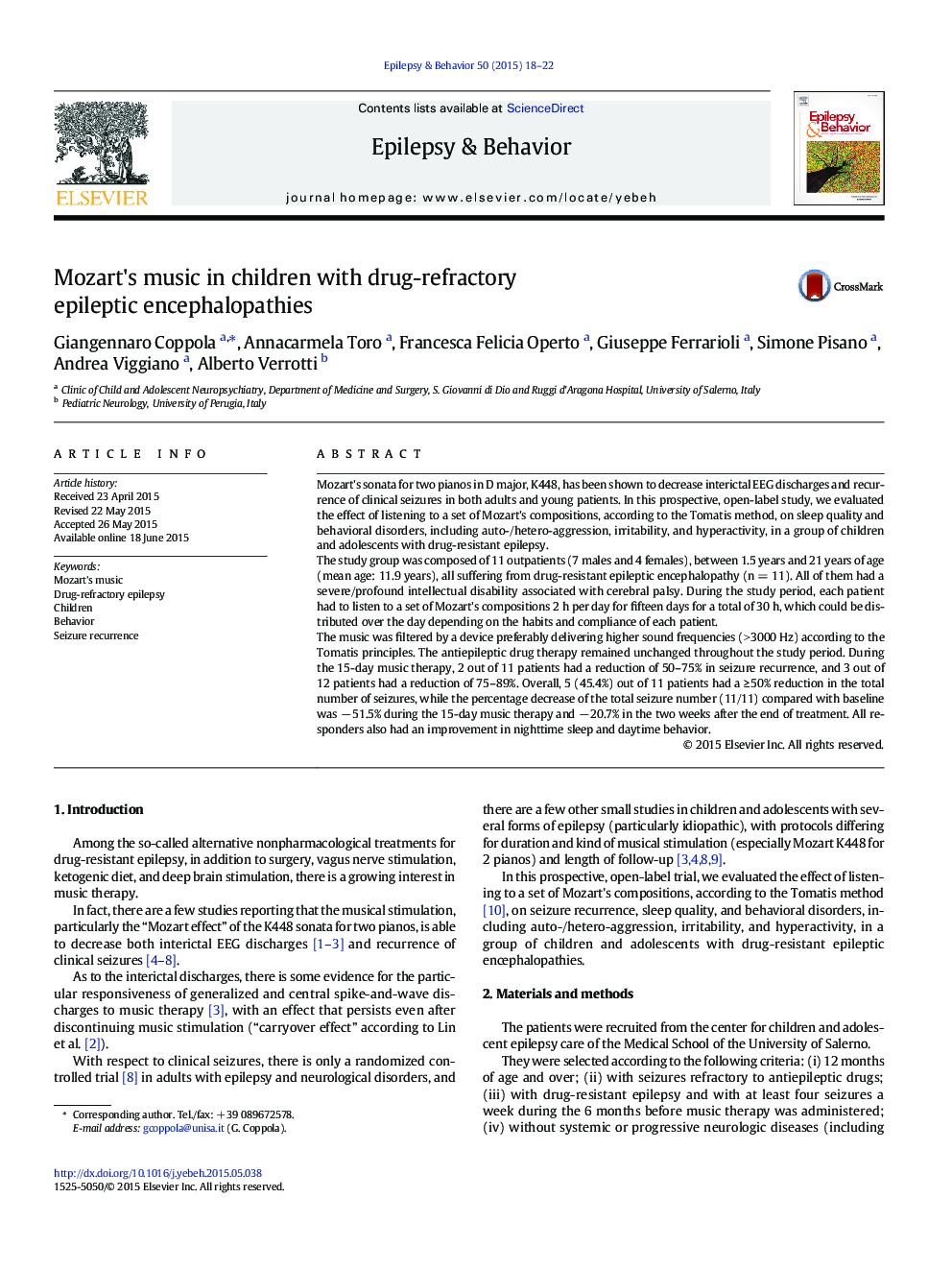| کد مقاله | کد نشریه | سال انتشار | مقاله انگلیسی | نسخه تمام متن |
|---|---|---|---|---|
| 6010806 | 1579839 | 2015 | 5 صفحه PDF | دانلود رایگان |
- Mozart's music has been tried in children with refractory encephalopathies.
- Music therapy decreased seizure recurrence in about 45% of children.
- All responders also had an improvement in nighttime sleep and daytime behavior.
Mozart's sonata for two pianos in D major, K448, has been shown to decrease interictal EEG discharges and recurrence of clinical seizures in both adults and young patients. In this prospective, open-label study, we evaluated the effect of listening to a set of Mozart's compositions, according to the Tomatis method, on sleep quality and behavioral disorders, including auto-/hetero-aggression, irritability, and hyperactivity, in a group of children and adolescents with drug-resistant epilepsy.The study group was composed of 11 outpatients (7 males and 4 females), between 1.5 years and 21 years of age (mean age: 11.9 years), all suffering from drug-resistant epileptic encephalopathy (n = 11). All of them had a severe/profound intellectual disability associated with cerebral palsy. During the study period, each patient had to listen to a set of Mozart's compositions 2 h per day for fifteen days for a total of 30 h, which could be distributed over the day depending on the habits and compliance of each patient.The music was filtered by a device preferably delivering higher sound frequencies (> 3000 Hz) according to the Tomatis principles. The antiepileptic drug therapy remained unchanged throughout the study period. During the 15-day music therapy, 2 out of 11 patients had a reduction of 50-75% in seizure recurrence, and 3 out of 12 patients had a reduction of 75-89%. Overall, 5 (45.4%) out of 11 patients had a â¥Â 50% reduction in the total number of seizures, while the percentage decrease of the total seizure number (11/11) compared with baseline was â 51.5% during the 15-day music therapy and â 20.7% in the two weeks after the end of treatment. All responders also had an improvement in nighttime sleep and daytime behavior.
Journal: Epilepsy & Behavior - Volume 50, September 2015, Pages 18-22
